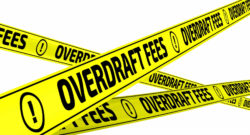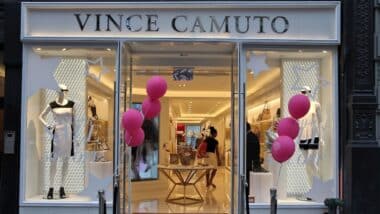 Banks may change overdraft payment order for purchases to maximize the fees they can charge when a customer spends more than what is in their account. Pacific Western Bank may be one such bank that is using this overdraft payment order method and other methods to hit their customers with many fees in an effort to maximize their profits.
Banks may change overdraft payment order for purchases to maximize the fees they can charge when a customer spends more than what is in their account. Pacific Western Bank may be one such bank that is using this overdraft payment order method and other methods to hit their customers with many fees in an effort to maximize their profits.
Overdraft fees, also known as overdraft protection fees, are fees that banks and credit unions charge when a customer makes a purchase that exceeds the amount that is in their account, and the financial institution still allows the purchase to go through. The overdraft payment order could rack up fees quickly.
These fees are advertised as a convenience — financial institutions often tell customers that overdraft protection gives them flexibility with their money. However, they have a dark side. Each time a customer overdrafts their account and the bank allows the charge to go through, they charge the customer a fee. Because the transaction goes through, customers may not know until later that they have overdrawn their account.
In some cases, customers can make many purchases after they have overdrawn their account, and end up racking up hundreds of dollars of fees, because a fee is charged at each purchase.
Because these fees can be confusing and can cause so much financial harm, federal law requires that banks do not sign up customers for overdraft protection programs without their consent. Customers must knowingly opt-in to overdraft protection programs.
However, banks and credit unions may still be finding deceptive ways to charge customers in their overdraft protection programs as many fees as possible. News outlets in both the U.S. and Britain have recently informed consumers about the ways in which financial institutions may have taken advantage of consumers. NPR recently published a piece advising consumers on how they can best avoid bank fees like overdraft fees because they can quickly get out of hand.
The methods can possibly include processing transactions out of order. If a bank processes transactions out of the order in which they were made, they can possibly charge overdraft fees on more transactions than they otherwise would.
For example, if a customer with overdraft protection has $100 in their account and they make the first purchase for $30 and a second purchase for $110, the bank would seemingly assess the customer a fee only for the second, $110 transaction, as the first does not overdraft the account. However, some banks would possibly process these transactions in reverse order. If they did this, then they would charge an overdraft fee on both the $30 charge and the $110 transaction.
One bank that may be doing this is Pacific Western Bank, formerly California United Bank. In 2017, California United Bank merged with Pacific Western Bank and sent a letter to its customers notifying them of the merger and of how it would affect their banking experience. In this communication, the bank laid out its fees policies.
In the information on overdrafts and returned checks, Pacific Western stated that it “reserve[s] the right to process checks and other items presented against your account in any order.” So Pacific Western may be using this overdraft payment order policy to maximize the number of overdraft fees it can charge to customers.
If you were charged unfair overdraft fees by your bank or credit union, you could be eligible to participate in a FREE class action lawsuit investigation. If you qualify, an attorney will contact you to discuss the details of your potential case at no charge to you.
Fill out the form on this page now for a free, immediate, and confidential case evaluation.
ATTORNEY ADVERTISING
Top Class Actions is a Proud Member of the American Bar Association
LEGAL INFORMATION IS NOT LEGAL ADVICE
Top Class Actions Legal Statement
©2008 – 2025 Top Class Actions® LLC
Various Trademarks held by their respective owners
This website is not intended for viewing or usage by European Union citizens.
Get Help – It’s Free
Join a Free Bank Overdraft Fee Class Action Lawsuit Investigation
If your bank and credit union has engaged in deceptive overdraft fee practices, you may have a legal claim. Fill out the form on this page now to find out if you qualify!
An attorney will contact you if you qualify to discuss the details of your potential case.
PLEASE NOTE: If you want to participate in this investigation, it is imperative that you reply to the law firm if they call or email you. Failing to do so may result in you not getting signed up as a client or getting you dropped as a client.
In order to properly investigate overdraft fee claims, you may be required to disclose bank statements to overdraft fee attorneys. Please note that any such information will be kept private and confidential.












